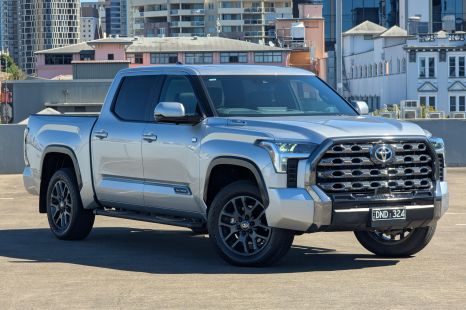

Damion Smy
Toyota exporting US-built cars to Japan after Trump criticism
2 Days Ago

Contributor
Forget about birthday cake, Toyota is celebrating 60 years in Thailand with a concept car pointing to an electric future for the HiLux.
The HiLux Revo BEV concept was revealed by Toyota CEO Akio Toyoda alongside the smaller IMV 0 concept.
“The unveiling of the all-new HiLux Revo BEV concept by our global president Akio Toyoda presents an exciting window into our commitment to achieve carbon neutrality across our vehicle range,” Toyota Australia vice president of sales, marketing, and franchise operations Sean Hanley said.
“This innovative new concept confirms Toyota’s belief in the importance of BEVs and into addressing the specific challenges involved in developing electrified commercial vehicles, considering customer usage requirements.”
UPDATE 15/12/22 5:00pm – We’ve updated the story with comment from Sean Hanley, and edited our headline to reflect his comments. We’ve reproduced Mr Hanley’s statement in full at the bottom of the story.
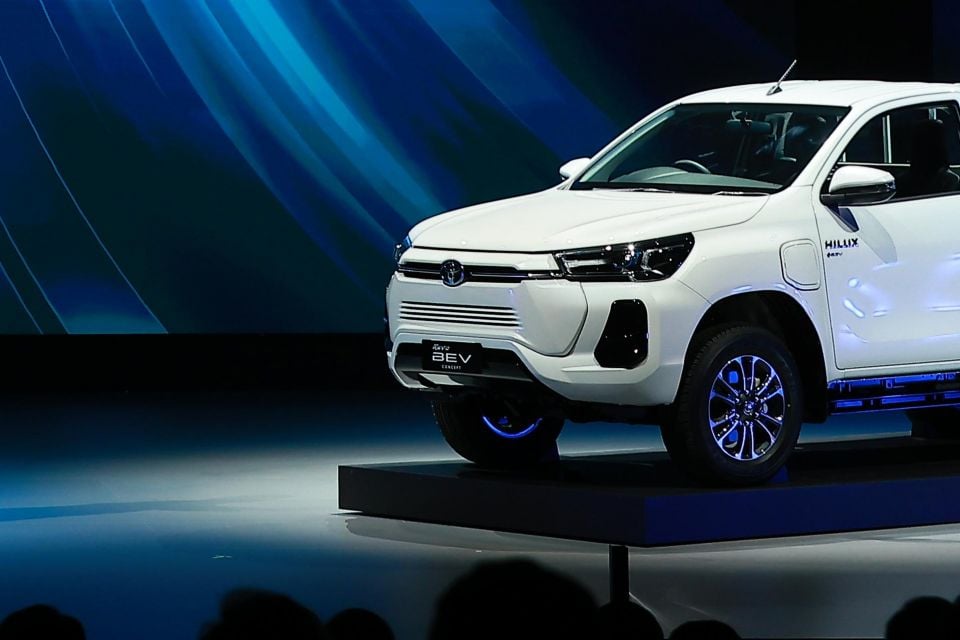
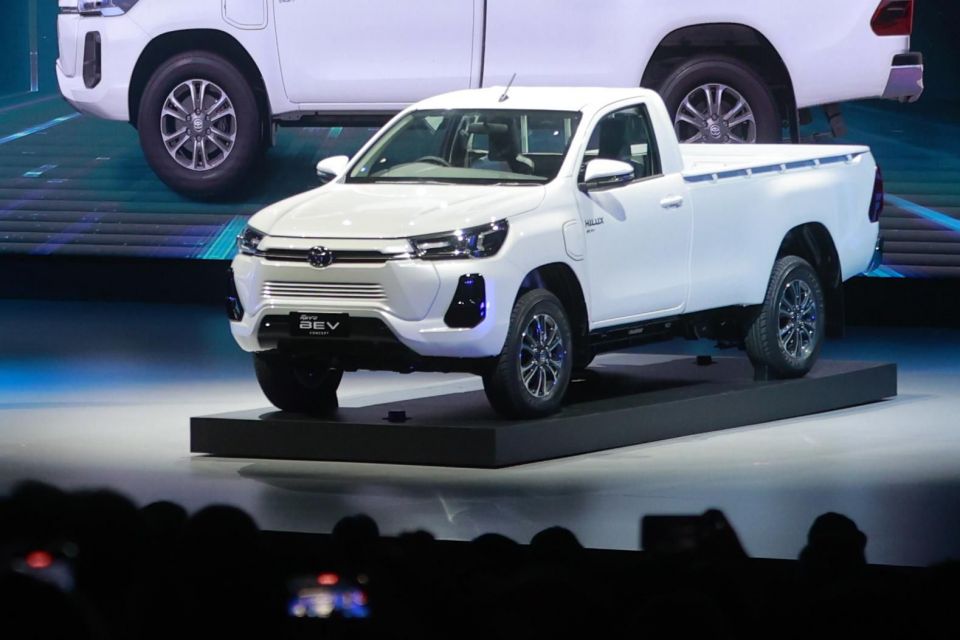
Details about the electric HiLux are scant. We don’t know what size its battery pack is nor how much range Toyota is targeting, let alone key details for ute owners such as payload and towing capacity.
The car shown on stage was clearly based on the existing internal-combustion HiLux, although it features a closed-off grille and a prominent charge port on its front three-quarter panel.
According to Mr Toyoda, it’s “designed to support carbon neutrality and a better environment for all”.
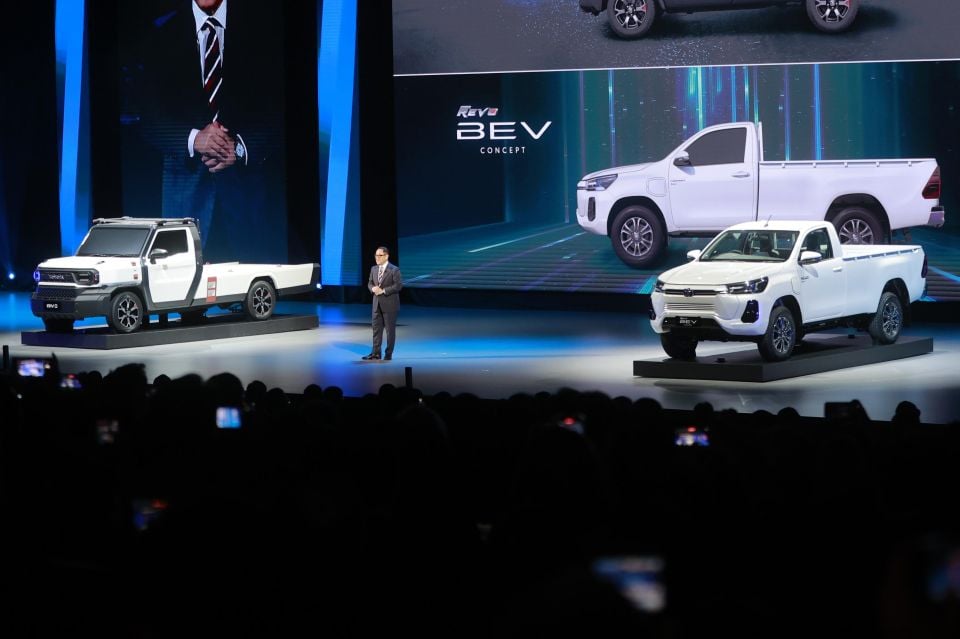
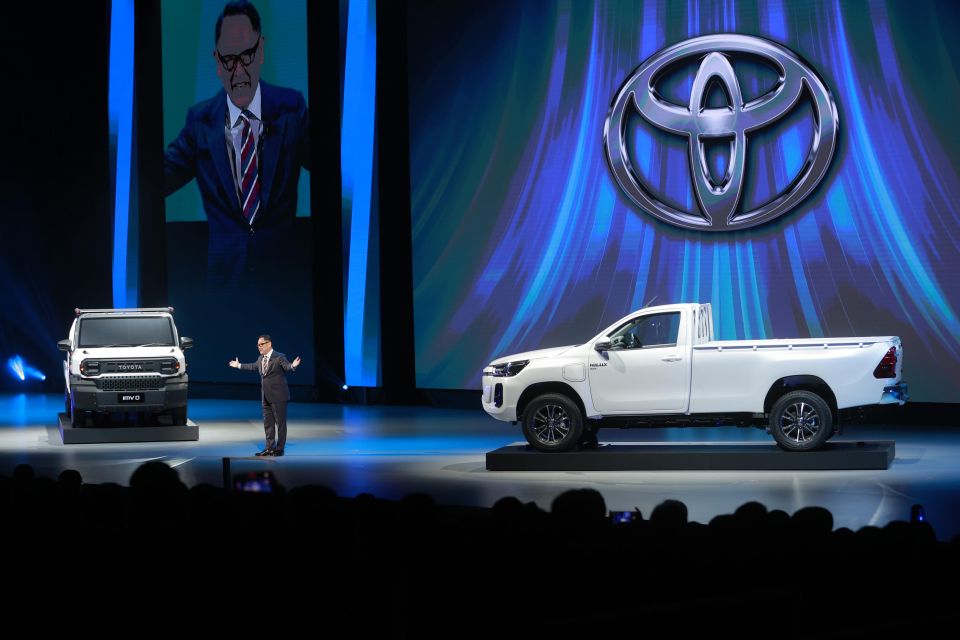
The modular IMV 0 truck shown alongside the HiLux is “over a year away”, according the Mr Toyoda, but he offered no comment on when an electric version of Australia’s best-selling vehicle could hit production.
The electric ute segment is heating up in Australia, with BYD today confirming it will launch a competitor to the LDV eT60, plus the incoming JAC T9 EV and (potentially) Geely Radar RD6, in 2024.
Ford has alluded to the fact a Ranger-sized electric ute is on the horizon, and Volkswagen Australia this week said it understands an electric Amarok is in development.
An electric HiLux would give Toyota an entrant in the growing EV ute space, which globally includes entrants from Ford, Rivian, Chevrolet, GMC, Geely, BYD, and (soon enough, hopefully) Tesla.
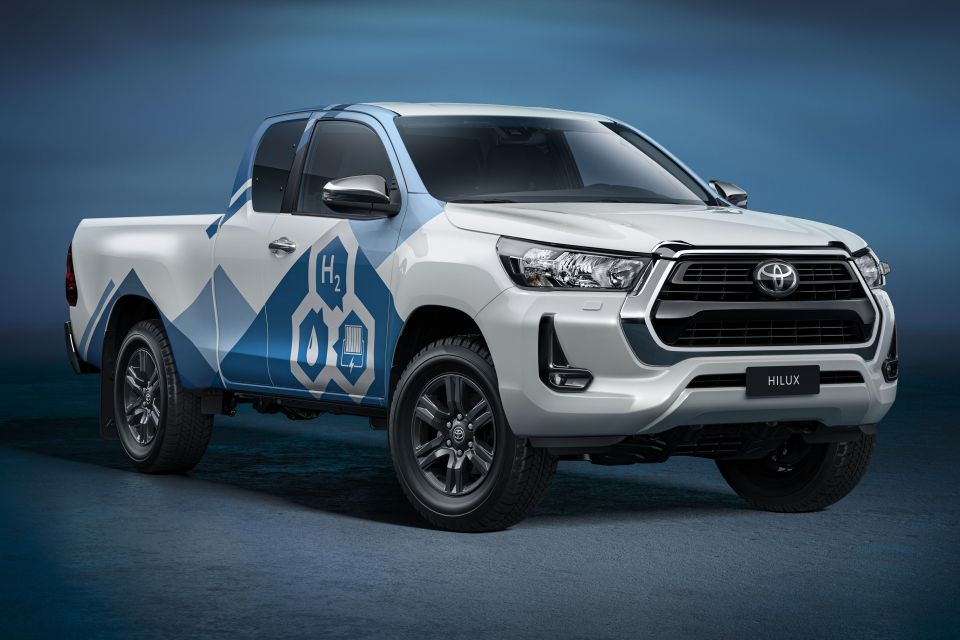
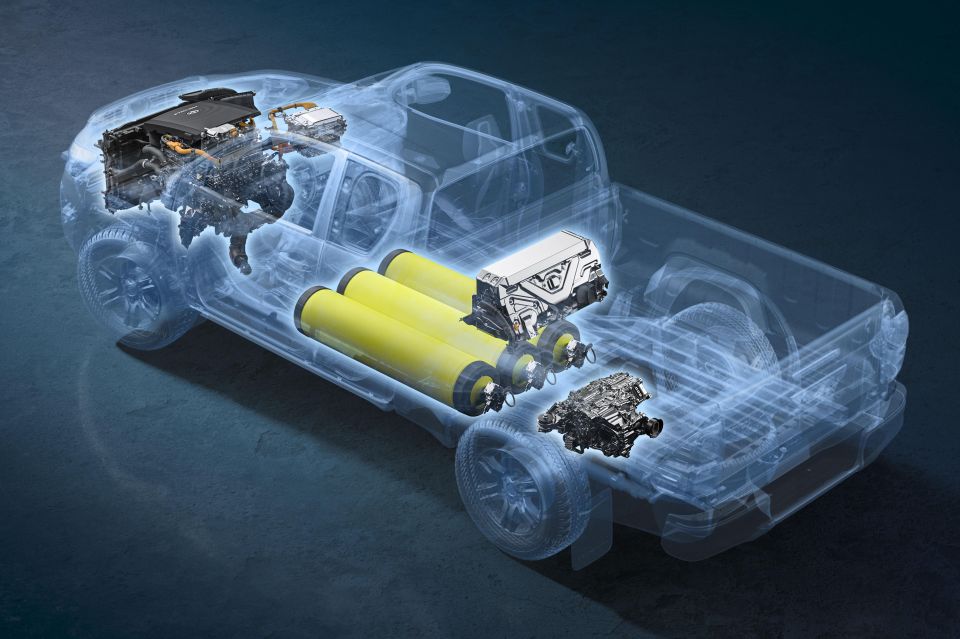
Toyota hasn’t committed to an EV ute, but it’s currently experimenting with alternative fuel sources in the HiLux around the world; recently it revealed it’s developing a hydrogen HiLux with a number of partners.
Although it laid out 16 electric vehicle concepts with production intent in December 2021, including a pickup truck, exactly when we might see a mass-produced electric ute from the Big T isn’t clear.
Reports from October 2022 suggest it’s plotting a drastic overhaul of the electric plans – which included building 3.5 millions EVs per year by 2030 – laid out in 2021.
While the automaker considers its options, it has reportedly paused several of the EV projects announced at the end of 2021.
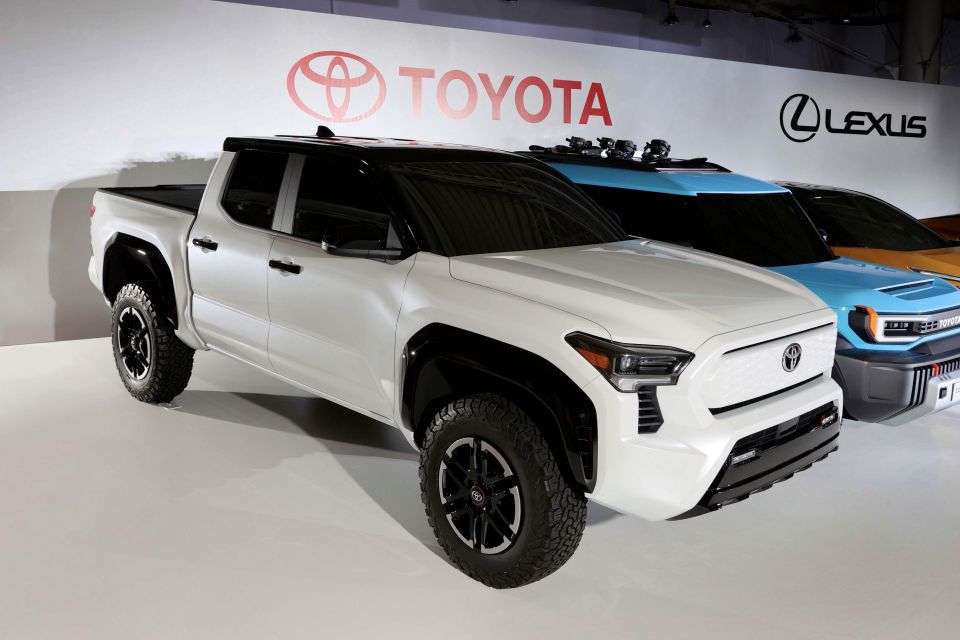
The brand’s first mass-produced electric car is the bZ4X SUV, set to hit Australia in 2023 after recall– and demand-related delays.
It’s since announced more EVs, although not all are global cars – the bZ3 will be China-only, for example.
Although we’re waiting to hear when a factory-backed option might lob, you are able to get an electric Toyota HiLux in Australia in 2022.
Roev earlier this year announced details on its EV Fleet Program, which allows customers to convert their post-2016 Toyota HiLux or Ford Ranger workhorses to electric power.
There are two proposed configurations: a 64kWh Standard Pack offering up to 240km of range, and a 96kWh Extended Pack offering up to 360km.
Conversions will have vehicle-to-load (V2L) with 240V powerpoints for powering equipment, an 11kW onboard AC charger, and maximum CCS DC charging speeds of 80kW.
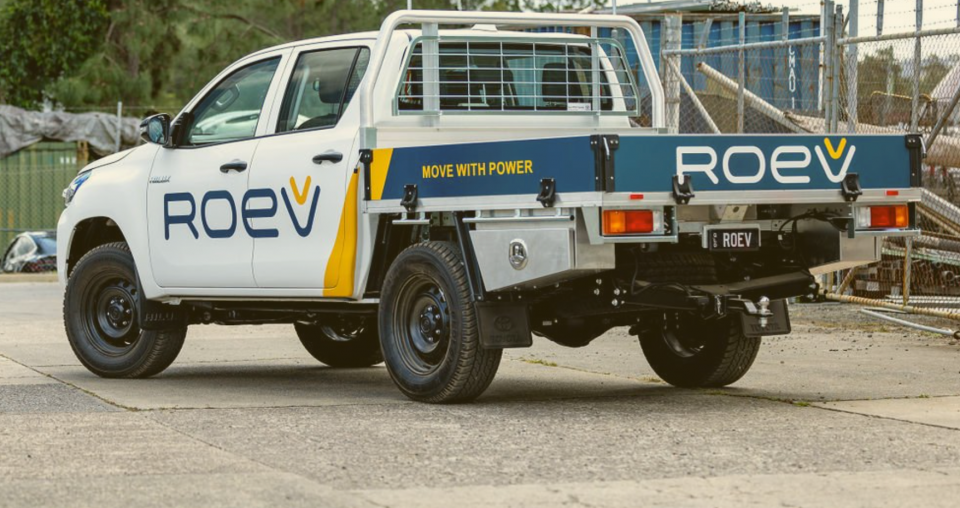
Full statement from Sean Hanley, Toyota Australia vice president of sales, marketing, and franchise operations:
The unveiling of the all-new HiLux Revo BEV concept by our global president Akio Toyoda presents an exciting window into our commitment to achieve carbon neutrality across our vehicle range.
This innovative new concept confirms Toyota’s belief in the importance of BEVs and into addressing the specific challenges involved in developing electrified commercial vehicles, considering customer usage requirements.
Australian motorists understand that widespread adoption of BEVs requires significant development of the supporting infrastructure. They also understand that future vehicles must be practical, affordable and fit for purpose.
Toyota’s approach is that BEVs are not the only way forward, which is why we continue to develop multiple options to help our customers on their journey to carbon neutrality, leaving no-one behind.
Carbon is the enemy, which means that all industries involved in the sourcing of materials, manufacture, use and disposal of vehicles must play their role towards a sustainable future.
Where expert car reviews meet expert car buying – CarExpert gives you trusted advice, personalised service and real savings on your next new car.
Scott Collie is an automotive journalist based in Melbourne, Australia. Scott studied journalism at RMIT University and, after a lifelong obsession with everything automotive, started covering the car industry shortly afterwards. He has a passion for travel, and is an avid Melbourne Demons supporter.


Damion Smy
2 Days Ago
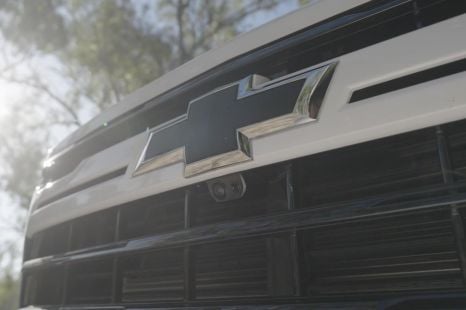

Ben Zachariah
4 Days Ago


James Wong
10 Days Ago
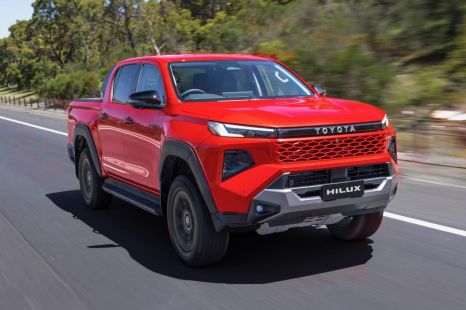

Ben Zachariah
11 Days Ago
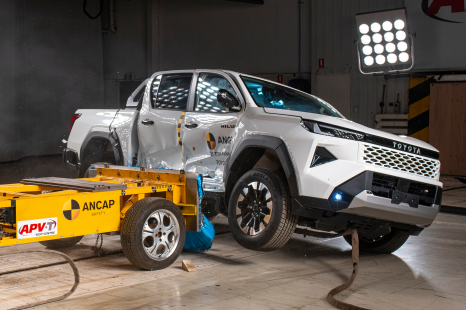

William Stopford
11 Days Ago
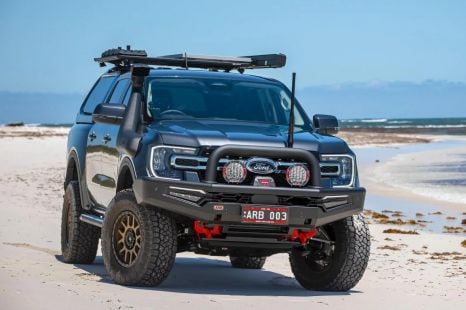

William Stopford
11 Days Ago